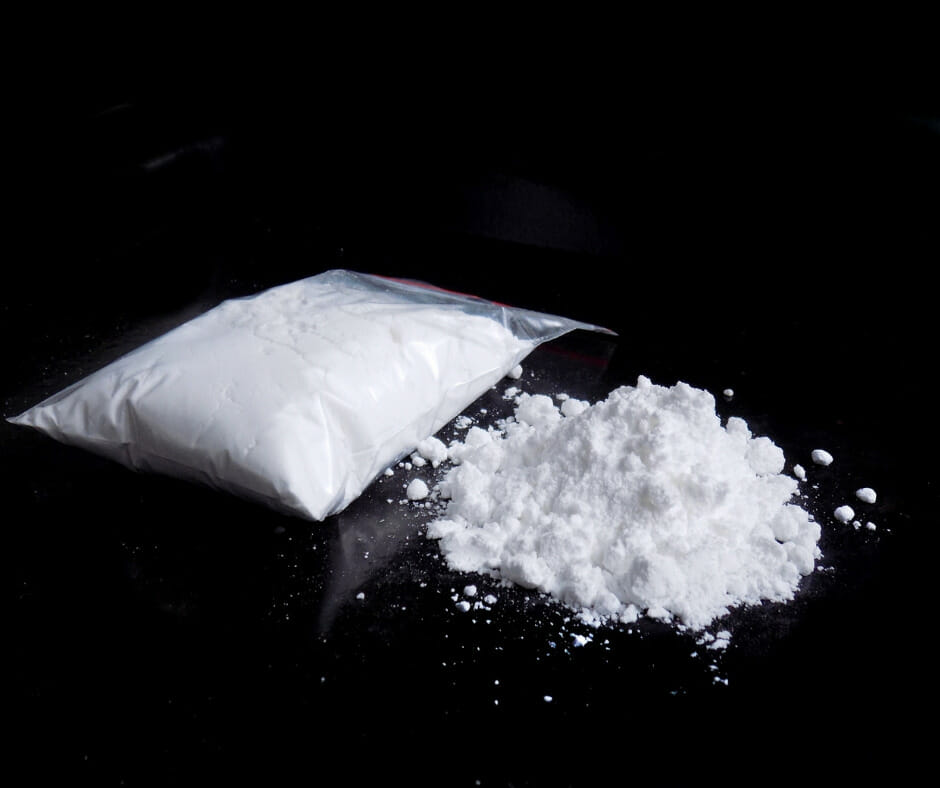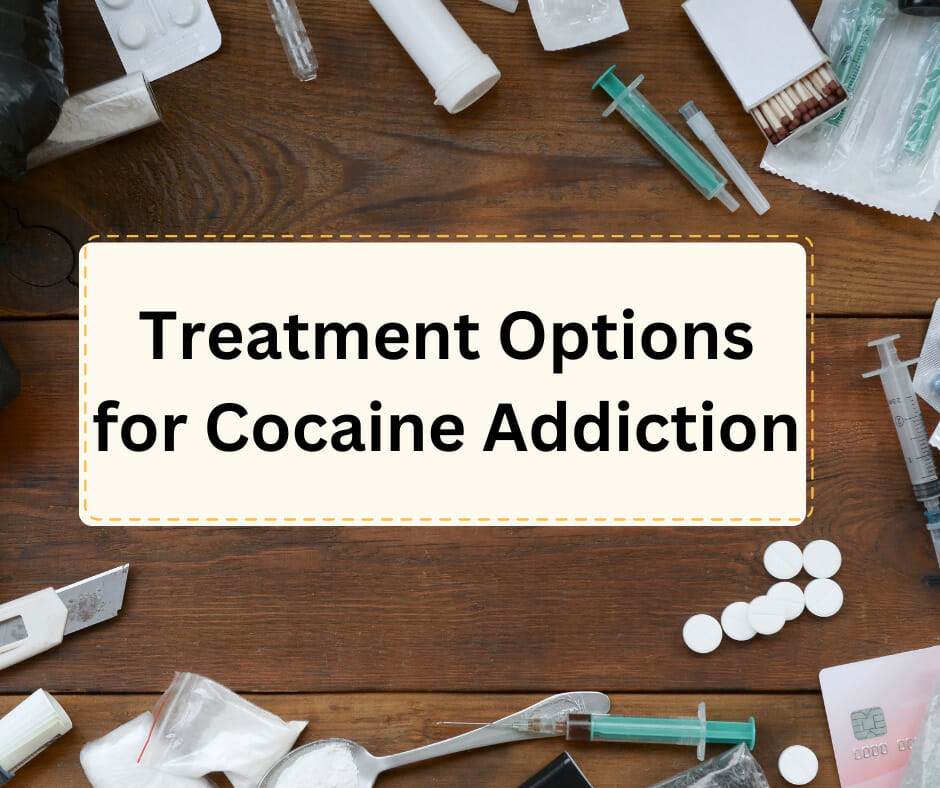Cocaine addiction can be a devastating condition that affects both the person struggling with addiction, as well as their family, friends, and loved ones. Fortunately, there are many treatment options available for individuals suffering from cocaine addiction. Lantana Recovery offers comprehensive addiction recovery programs for cocaine addiction.
In this blog post, we will explore some of the most common treatments for cocaine addiction and how they can help those in need, get back on track to a healthier life.

What is Cocaine
Cocaine is a powerful stimulant drug that speeds up activity within the brain. It’s most commonly found as a white powder, but it can also be cut or mixed with other substances, such as baking soda. When ingested, cocaine produces intense alertness, increased energy levels, and an overall sense of well-being.
However, long-term use of cocaine can lead to extreme addictiveness and significant health consequences, including increased heart rate and high blood pressure. To prevent the use and abuse of the substance, it is illegal in all countries except for very limited medical uses.
Treatment Options for Cocaine Addiction

Inpatient Rehab
Inpatient rehab is a comprehensive treatment program for individuals struggling with cocaine addiction. It involves living at the rehab facility full-time and participating in a variety of evidence-based therapies and support groups.
The primary goal of inpatient rehab is to provide a safe, structured environment for people to develop healthier coping skills and begin their journey toward recovery. This type of intensive treatment offers 24-hour medical care, individual counseling, and family therapy.
Additionally, patients receive medication management if needed, education about addiction, life skills training, nutrition counseling, spiritual guidance, holistic therapies like yoga and meditation, activities that support self-care, and socialization (art therapy or recreational activities).
Partial Hospitalization Rehab
Partial hospitalization rehab is designed to bridge the gap between intensive inpatient care and traditional outpatient services. This form of treatment provides more freedom than inpatient rehab but still provides consistent access to substance abuse counseling and monitoring.
During partial hospitalization rehab, participants attend therapeutic sessions 1-3 days per week depending on their individual needs. These sessions can include individual or group psychotherapy focused on developing problem-solving skills as well as relapse prevention strategies, chemical dependency education classes, 12-step meetings, life skills training, peer support programs, etc.
Intensive Outpatient Rehab
Intensive outpatient rehabilitation provides cocaine addiction treatment in the least restrictive setting possible while still providing an adequate level of care for those who need it most. Intensive outpatient programming involves scheduled check-ins five times a week where each participant has access to personalized case management services provided by a clinical team including psychiatrists or physicians (if needed), mental health counselors/therapists, nurses or nurse practitioners, and psychologists.
Intensive outpatient programs also focus on cognitive behavioral therapy, relapse prevention strategies, and other evidence-based approaches into one unified model for helping individuals make positive changes in their lives.
At Lantana Recovery, our intensive outpatient rehabilitation services will help you get rid of cocaine addiction.
Outpatient Rehab
Outpatient rehabilitation is an ideal choice for individuals who need some structure but are able to live independently outside the facility during treatment. Outpatient programs involve fewer hours per week than intensive outpatient programs with regularly scheduled visits typically taking place once or twice a week for 3–6 months depending upon the needs of each patient.
Outpatient programs may include individual counseling sessions, group discussions focusing on topics related to addiction such as relapse prevention strategies; drug education classes; 12-step meetings such as Alcoholics Anonymous (AA), family therapy sessions, etc.
Cocaine: Dependence vs. Addiction
Cocaine dependence is an adaptive response to the regular use of cocaine. Cocaine dependence is characterized by difficulty in controlling the use and experiencing withdrawal symptoms when not using the drug. People who are dependent on cocaine may experience cravings or have difficulty limiting their intake without help from other people or treatments.
Cocaine addiction differs from dependence because it goes beyond physical dependency to include compulsive behavior and impaired control over the use of cocaine, despite adverse consequences. Addiction also involves a change in brain chemistry that can persist even after quitting the usage of cocaine.
The main difference between dependence and addiction is that while dependence refers primarily to physical changes in the body’s response to the use of cocaine, addiction involves psychological changes.
Additionally, while both involve a person having difficulty controlling their usage of cocaine, someone with an addiction will continue using it despite experiencing negative consequences due to its use.
Cocaine Addiction Symptoms
Cocaine is a powerful and highly addictive stimulant drug that can lead to significant physical, psychological, and emotional effects. Knowing the signs of cocaine addiction is essential for anyone who suspects they or someone they care about may be struggling with substance use disorder.
Physical Symptoms
The physical side effects of cocaine can vary significantly from person to person. Some common physical symptoms associated with cocaine abuse include
- Increased heart rate
- Blood pressure
- Body temperature
- Dilated pupils
- Twitching and tremors
- Nausea
- Chest pain
- Headaches
- Loss of appetite
- Insomnia
- Paranoia
- Fatigue
- Weight loss or gain
- Gastrointestinal problems
Additionally, people who snort cocaine may experience a runny nose, sore throat, and nasal congestion. If you or someone you know is exhibiting any of these symptoms, our team at Lantana Recovery can help you with the diagnosis and treatment.
Psychological Symptoms
The psychological symptoms associated with cocaine addiction are just as serious as the physical symptoms. People struggling with cocaine addiction often experience intense cravings for the drug, irritability, anxiety, depression, mood swings, aggression or violence, impaired decision-making capabilities, suicidal thoughts or behaviors, hallucinations (both auditory and visual), confusion, or disorientation.
In addition to these psychological symptoms that come directly from using cocaine itself, individuals addicted to this drug may also find themselves engaging in risky behaviors such as stealing money in order to obtain more drugs or engaging in unprotected sexual activities with multiple partners.
Lantana Recovery can help treat these psychological symptoms associated with cocaine addiction.
Cocaine Addiction Treatment Options in South Carolina
There is a wide range of treatment options available to individuals with cocaine addiction in South Carolina.
Cocaine Rehab in Charleston
In Charleston, there are numerous rehabilitation centers like Lantana Recovery that specialize in treating substance abuse and addiction issues such as cocaine addiction. These rehab centers provide a supportive environment with personalized care plans that focus on the individual’s unique needs and goals.
These rehab centers in Charleston offer evidence-based therapies such as cognitive behavioral therapy, group counseling, and family support services to help people overcome their addiction to cocaine.
Additionally, medical detox services are also available for those who need it. Medication-assisted treatment (MAT) may also be prescribed for some patients in order to reduce cravings and withdrawal symptoms associated with quitting cocaine use.
Cocaine Treatment for Greenville Residents
In Greenville, there are many treatment centers that provide alternative drug treatments for those suffering from substance abuse issues. These facilities can help individuals identify triggers and develop coping skills to prevent relapse.
Treatment methods may include individual counseling sessions, group therapy, and/or 12-step programs like Narcotics Anonymous or Cocaine Anonymous. Additionally, these drug treatment centers in Greenville often offer educational classes related to drug abuse prevention and management of mental health issues that may contribute to the addiction problem.
Lantana Recovery extends cocaine addiction treatment for Greenville residents.
Cocaine Drug Treatment Services Extended to Columbia
Many drug treatment facilities in Columbia offer a variety of specialized drug treatment services geared specifically toward helping people recover from cocaine addiction. These services also include inpatient residential treatment programs where individuals receive comprehensive medical care and clinical support from experienced professionals. Lantana Recovery extends comprehensive cocaine drug addiction treatment services for Columbia locals.
Outpatient programs in Columbia are also available for those who want to maintain their day-to-day responsibilities while receiving continued treatment for their cocaine addiction. Both types of programs involve evidence-based therapies designed to help clients identify underlying issues contributing to their substance abuse problems so they can learn how to cope without using drugs or alcohol as a crutch.

Cocaine Addiction: Long-Term Effects
Cocaine is a highly addictive drug that can have long-lasting effects on an individual’s physical, psychological, and social well-being. A long-term cocaine user could face serious health issues such as life-altering physical impairments and permanent damage to blood vessels.
In addition to physical ailments, chronic cocaine use can lead to serious mental health issues including deranged thought processes, delusions, and hallucinations. Over time, users of cocaine become psychologically dependent on the drug.
This creates a cycle where more potent doses of cocaine are consumed in order to achieve the desired effect, causing an even deeper dependence on the substance and leading to addiction.
These grim consequences are the impact left behind by prolonged abuse of cocaine; it is essential to be aware of them before using this drug or any other substances that could affect one’s well-being.
Cocaine Treatment FAQs
Can I go to detox for Cocaine addiction?
Yes, you can go to detox for cocaine addiction. In fact, medically-assisted cocaine detox under the supervision of medical professionals is the most highly recommended course of treatment for cocaine abuse.
Can I attend inpatient rehab for Cocaine addiction?
Yes, you can attend inpatient rehab for cocaine addiction. Inpatient rehab is often recommended for patients with a severe addiction to cocaine but anyone can attend inpatient rehab if they can afford it.
Can I enroll in outpatient rehab for Cocaine addiction?
Yes, you can enroll in outpatient rehab for cocaine addiction. However, this is usually prescribed to patients with low-mild addiction to cocaine. Be sure to check with your healthcare provider if it’s appropriate for you.
Can I Overdose on Cocaine?
Yes, you can overdose on cocaine. Since it is known to cause dependence, most users tend to take greater dosages in order to feel the required high which unfortunately increases the chances of a cocaine overdose.
Final Thoughts on Cocaine Addiction Treatment
Cocaine addiction is a serious issue that can have devastating consequences on all aspects of an individual’s life. It is important to be aware of both the physical and psychological symptoms associated with this condition so that appropriate measures can be taken if necessary.
If you believe you or someone you know may be struggling with substance use disorder related to cocaine use it is important to seek help immediately from a qualified healthcare professional. With the right support system in place, recovery is possible!





